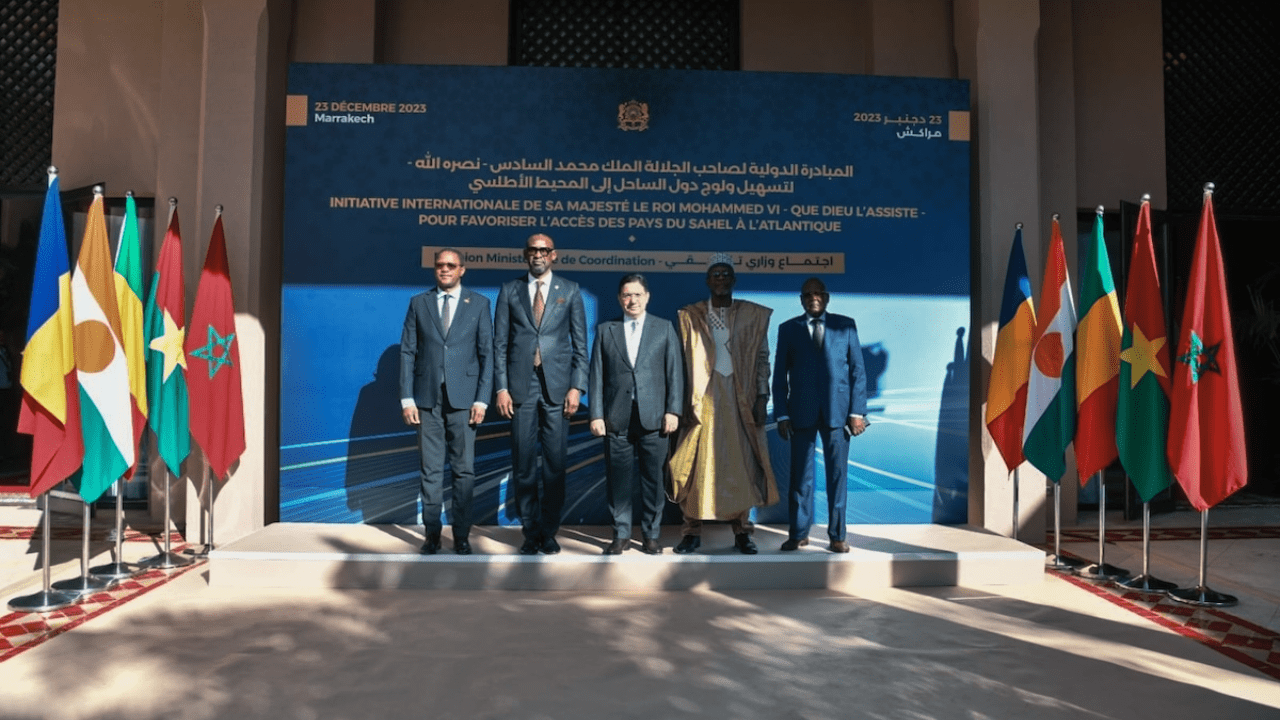Morocco is a key mediator for the stability of the Sahel, thanks to its proactive diplomacy and commitment to peace. As a political mediator, it has facilitated crucial dialogues, as evidenced by the release of the four French agents in Burkina Faso, illustrating its effectiveness in managing diplomatic crises. At the same time, Morocco plays an essential role as a spiritual mediator in the fight against radicalism. King Mohammed VI, backed by his religious legitimacy, leads initiatives such as the Mohammed VI Institute for the Training of Imams, thereby contributing to the promotion of moderate Islam and the reduction of extremism in the Sahel. Moroccan diplomatic action in this region combines a multilateral approach and spiritual engagement, reflecting a unique model of mediation aimed at promoting security stability and international cooperation.
In an era marked by persistent conflicts and omnipresent security issues, resorting to peaceful and non-coercive means is no longer an option but a necessity to resolve disputes. Morocco, as a mediating actor in the Sahel region, embodies this approach by combining proactive diplomacy, multilateral engagement, and concrete initiatives on the ground. This topic is particularly important today, as the stability of the Sahel region represents a crucial issue for regional and international security.
The current instability in the Sahel has its origins in the arbitrary border delineation established during the colonial period. European powers, ignoring local ethnic, tribal, and cultural realities, imposed a new territorial planning through a North-South border division. This division was carried out despite the traditional borders, which were formed horizontally by local communities. These inherited borders, which did not take into account the pre-existing social realities, caused deep internal divisions. This has favored identity crises and internal fragmentation, leading to significant social instability. This historical situation has created fertile ground for the race for power, the multiplication of coups d'état, and the emergence of terrorist groups, such as those observed in Mali, Burkina Faso, and Guinea. The political regimes of these Sahelian states, already weakened by corruption, rebellions, and internal conflicts, struggle to establish social cohesion and build a true common national citizenship due to deep-seated identity divisions.
Today, the Sahel faces pressing security challenges, exacerbated by the active presence of jihadist groups such as Boko Haram, which intensify regional insecurity. The Sahel region remains a space marked by tensions related to access to power, heightened insecurity, and unstable geopolitics that continue to threaten peace and stability at both the regional and international levels.
In the face of these complex challenges, regional cooperation and diplomatic initiatives, such as those implemented by Morocco, are crucial to addressing current issues. Morocco, in particular, stands out for its essential role as a mediator in the fight against radicalism, focusing on an approach based on the promotion of moderate Islam. This approach places the Kingdom at the heart of African dynamics and makes it an indispensable actor on the continent. The religious legitimacy embodied by King Mohammed VI, as the Commander of the Faithful and the spiritual leader of the community, is notably the foundation of this position. Thus, this legitimacy grants the Cherifian Kingdom a strong spiritual influence based on the values of the Maliki school of law and the richness of Sunni Sufism, deeply rooted in African societies. A concrete example of this commitment can be found in the Mohammed VI Institute for the Training of Imams, Morchidines, and Morchidates. This center hosts African imams and scholars, particularly from the Sahel, to train them as promoters of peace and mediators of a tolerant Islam. As a result, Morocco's spiritual diplomacy addresses the contemporary challenges of radicalism and contributes to regional stability by countering the pervasive extremist narratives in the region.
However, Morocco does not limit itself to playing a role as a spiritual mediator; it also marks a strategic turning point in its African diplomacy. His return to the African Union in 2017, after more than three decades of absence, demonstrates his willingness to actively engage in African dynamics. This return is part of an approach to promote peace and stability on the continent, particularly in the Sahel region through proactive diplomacy. This commitment is also realized in the political mediator role that Morocco has developed, facilitating the management of African crises and promoting peaceful solutions. In this regard, King Mohammed VI's intervention led to the release of four French agents from the General Directorate for External Security, who were arrested in December 2024 in Burkina Faso. This intervention highlighted Morocco's strategic role, which excels in the art of maintaining balanced relations with Western countries while engaging in constructive exchanges in the Sahel region.
In the long term, the strategy put forward by Morocco could play a key role in reducing radicalization and increasing stability in the Sahel. However, the security of this region constitutes a complex multilateral issue, transcending national and regional borders. Consequently, the resulting instability generates global repercussions, exacerbating security challenges on various scales. Phenomena such as forced migration and the spread of terrorism thus become issues of international significance.
To address these challenges, strengthened cooperation between the Sahel countries and other states on the African continent remains essential. Morocco, thanks to its successful experience as a political and religious mediator, leverages its strategic position and religious legitimacy to play a key role in international relations. In this dynamic, Morocco possesses the necessary skills to play a key mediating role. It would be wise for the Kingdom to continue capitalizing on its diplomatic expertise in order to facilitate dialogues among the various concerned actors. This role could help strengthen multilateral cooperation while providing solutions to current challenges.

